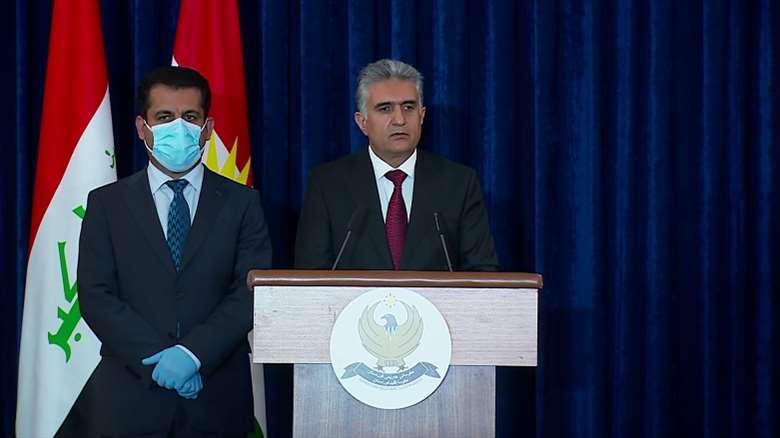KRG tightens curfew for next 48 hours as COVID-19 cases continue to climb
"We see that some people took advantage of the exemptions, and this was leading to overcrowding."

ERBIL (Kurdistan 24) – The Kurdistan Region's Interior Ministry on Friday announced a further tightening of region-wide curfew measures to limit the further spread of the coronavirus disease.
A ministry statement explained that for the next 48 hours, car and pedestrian movement is completely banned. All shops and bakeries, previously open to serve local needs, are to be closed.
"The new decision includes preventing members of the security forces (Asayish), the police, the Peshmerga forces and the federal police from moving, and using vehicles unless they are on official duty," the Interior Ministry said.
The new restriction also disallows doctors and Health Ministry employees from driving unless it is to work or back home from work. The ministry added that the authorities would hold to account those who break the new regulations.
The Kurdistan Region's Health Ministry has confirmed 214 cases of the new coronavirus disease, formally known as COVID-19. The Kurdistan Regional Government (KRG) has enacted several precautionary measures to contain the virus, including a region-wide curfew since mid-March.
However, the authorities allowed the movement of pedestrians so the public would be able to buy the goods they need from stores close to their residential areas. In such locations, reports have indicated overcrowding, and a lack of social distancing has been commonplace, raising the risks of transmission.
Interior Minister Reber Ahmed said during a press briefing on Saturday that the further tightening of the curfew came after consulting with provincial governors and heads of local governments "to asses the situation following Health Ministry reports indicating that the virus is continuing to spread."
He warned that the public needs to understand the dangers of the new coronavirus and urged them to stop breaking "the curfew order and instructions to stay home." Ahmed added, "We see that some people took advantage of the exemptions, and this was leading to overcrowding."
The minister said he fears that the infection could spiral out of control but assured the KRG was taking measures to prevent this and called on the public to take strict precautions to protect everyone's health.
Worldwide, the coronavirus has infected over 1.1 million people and killed more than 60,000, according to government-reported data compiled by Johns Hopkins University. The actual figures could be dramatically higher due to insufficient testing capabilities or underreporting.
Editing by Kosar Nawzad